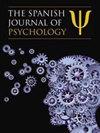Women’s Risk Perception and Responses to Intimate Partner Sexual Coercion: The Role of Type of Tactic, Previous Experience, and Myths Acceptance
IF 1.8
4区 心理学
Q1 PSYCHOLOGY
引用次数: 0
Abstract
Abstract Sexual coercion is among the subtlest forms of sexual violence in an intimate relationship and sometimes goes unnoticed by victims. The present study analyzed factors that potentially mitigate women’s negative perceptions of intimate partner sexual coercion (IPSC). A total of 427 women completed an online survey, in which they were shown vignettes illustrating a growing risk of sexual coercion according to the perpetrators’ use of different coercive tactics. Participants replied to questions that reflected their risk perception, their perceptions of perpetrator behavior, and the probability of their leaving the relationship. The survey also queried their previous IPSC experience, and their degree of acceptance of sexual aggression myths. According to the results, women exposed to positive (vs. negative) verbal sexual coercion (VSC) condition decided to leave the abusive situation later (risk response), presented a longer time lag between the moment they recognized the risk and the moment they responded to it, perceived the perpetrator’s behavior as more acceptable and excusable, and were less likely to leave the relationship. Finally, greater myth acceptance and previous IPSC experience predicted a lower probability of leaving the relationship, due to delayed risk responses and to perceiving the perpetrator’s behavior as more acceptable and excusable. This was true regardless of the type of coercive tactic used by the perpetrator. The results highlight the need to consider the type of coercive tactic, previous experience, and myths acceptance as risk factors that may impede a woman to adequately perceive and respond to an intimate partner’s sexual violence.女性对亲密伴侣性胁迫的风险感知和反应:策略类型、先前经验和神话接受的作用
摘要性胁迫是亲密关系中最微妙的性暴力形式之一,有时会被受害者忽视。本研究分析了可能减轻女性对亲密伴侣性胁迫(IPSC)负面认知的因素。共有427名女性完成了一项在线调查,在调查中,她们看到了一些小插曲,说明根据施暴者使用不同胁迫策略,性胁迫的风险越来越大。参与者回答的问题反映了他们的风险感知、对施暴者行为的感知以及他们离开关系的可能性。调查还询问了他们之前的IPSC经历,以及他们对性侵犯神话的接受程度。根据研究结果,暴露在积极(与消极)言语性胁迫(VSC)条件下的女性决定稍后离开虐待情境(风险反应),从她们意识到风险的那一刻到她们对风险做出反应的那一时刻之间存在更长的时间差,认为施暴者的行为更容易被接受和原谅,并且不太可能离开这段关系。最后,更大的神话接受度和以前的IPSC经历预测,由于风险反应延迟,以及认为施暴者的行为更容易被接受和原谅,离开这段关系的概率更低。无论犯罪者使用何种胁迫手段,情况都是如此。研究结果强调,有必要将胁迫策略的类型、以往的经历和对神话的接受视为可能阻碍女性充分感知和应对亲密伴侣性暴力的风险因素。
本文章由计算机程序翻译,如有差异,请以英文原文为准。
求助全文
约1分钟内获得全文
求助全文
来源期刊

Spanish Journal of Psychology
Arts and Humanities-Language and Linguistics
CiteScore
3.60
自引率
0.00%
发文量
44
期刊介绍:
The Spanish Journal of Psychology is published with the aim of promoting the international dissemination of relevant empirical research and theoretical and methodological proposals in the various areas of specialization within psychology.
The first Spanish journal with an international scope published entirely in English.
 求助内容:
求助内容: 应助结果提醒方式:
应助结果提醒方式:


